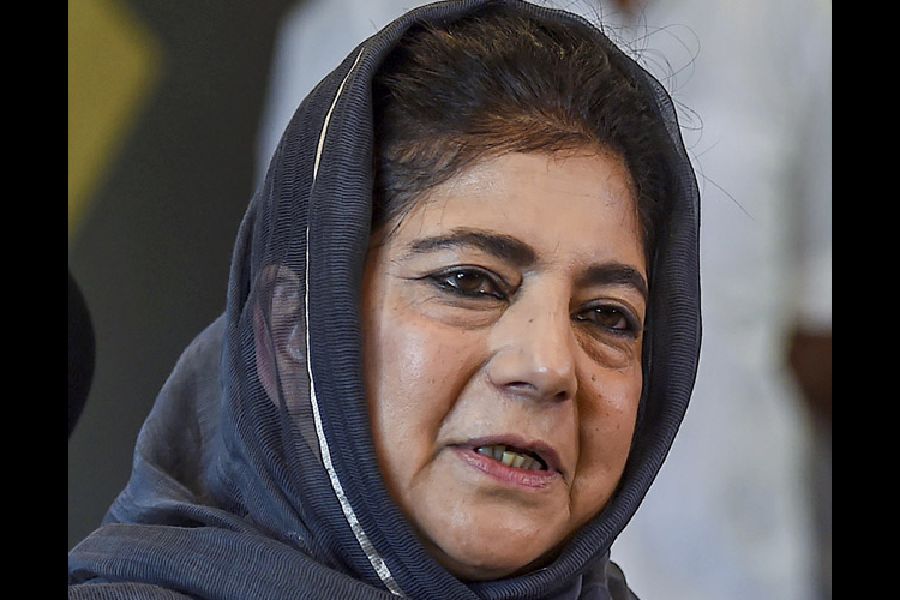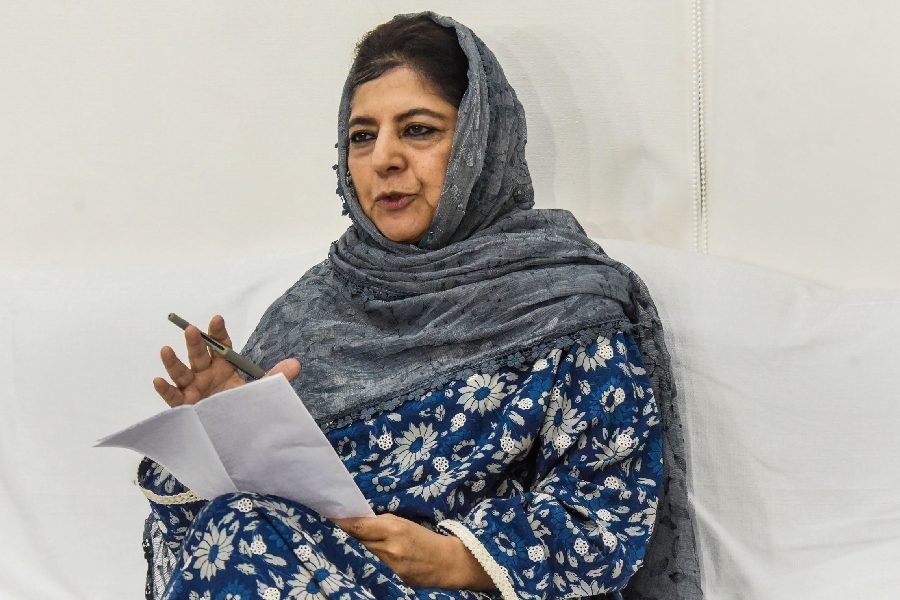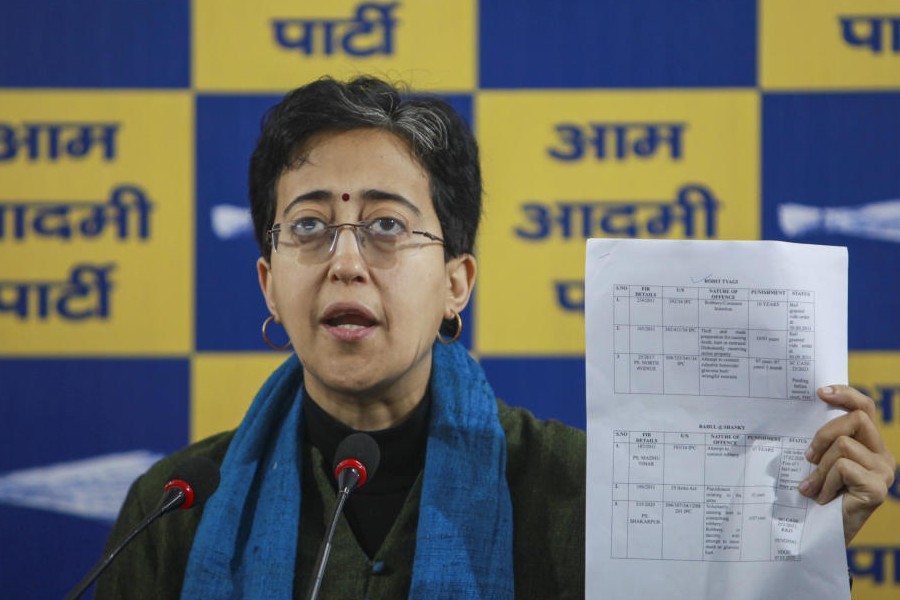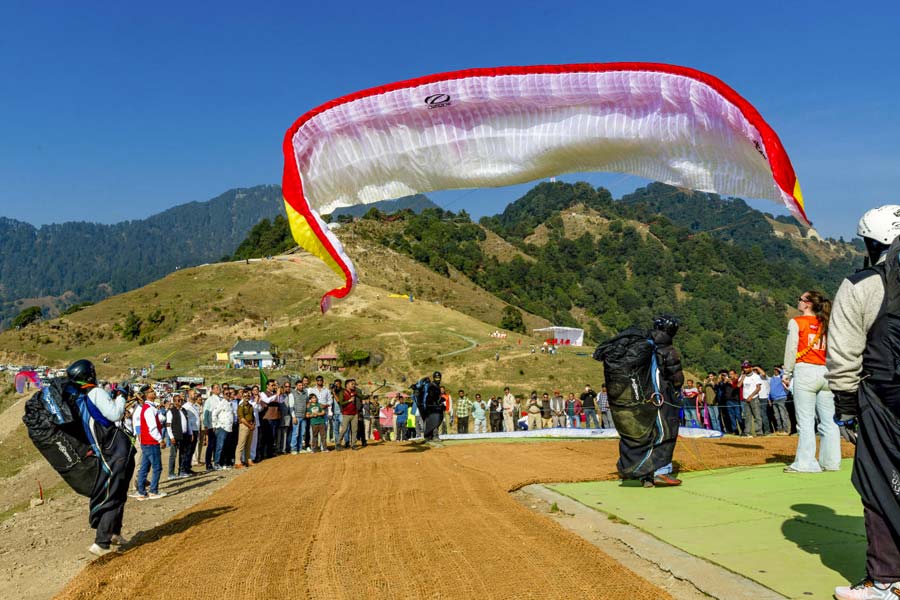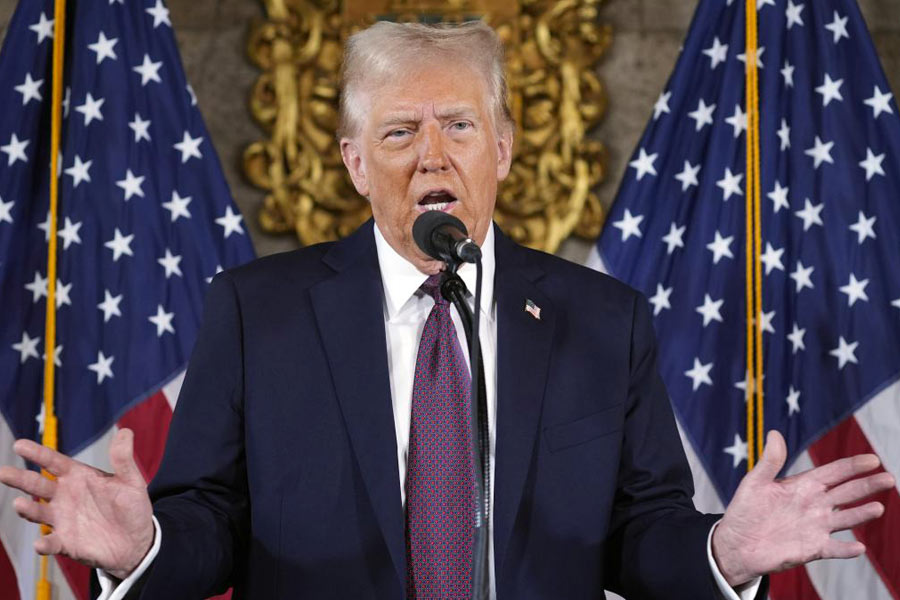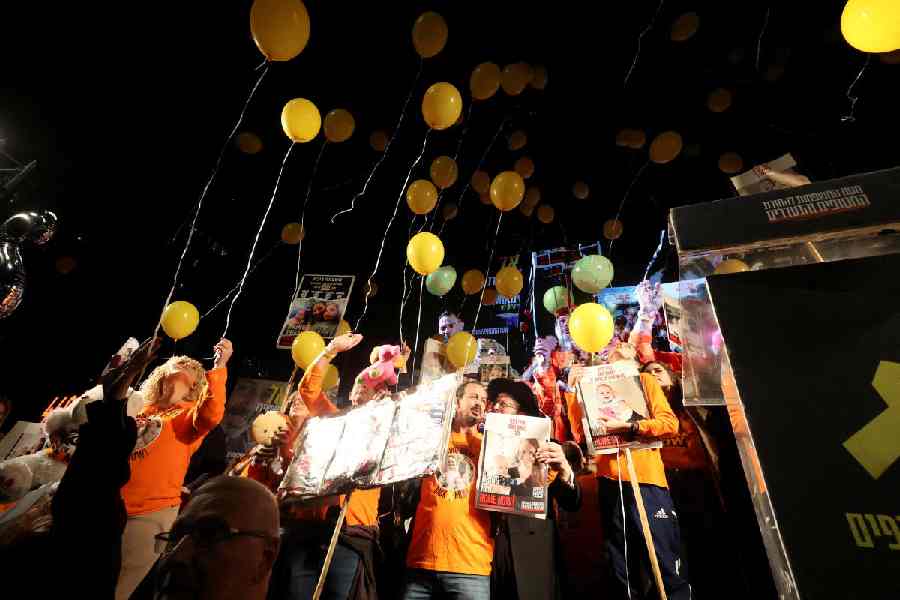The last chief minister of the state of Jammu and Kashmir and PDP chief, Mehbooba Mufti, believes India has slipped past being about Hindutva and become a Nathuram Godse-oriented nation.
“I don’t know where we are going. I feel this is not even Hindutva, what is playing out, this is Godse’s India and it frightens me. The BJP is allowing these elements free play, people who are spreading poison. And they will not have control,” Mufti told The Telegraph.
“Look at what’s happening in Manipur…. I fear Manipur is the future face of India and nobody will be able to do anything about it.” (Full interview in Graphic)
Mufti was speaking exclusively to The Telegraph soon after news broke that army jawans had entered a south Kashmir mosque pre-dawn and forced people at prayer to chant “Jai Shri Ram”. “This is the sort of thing they are doing everywhere with impunity,” a visibly wounded Mufti said. “I fear deeply for where we are headed, is this the nation we want?”
Of Kashmir, her description was a blunt riposte to the establishment’s default claim that since the dilution of Article 370 and the reduction of Jammu and Kashmir to a Union Territory, normality had returned to the Valley.
“Kashmir is the most abnormal place on earth,” Mufti said, “Everyone says Kashmir is normal, tourists are coming. How are we to explain to people what is really happening in Kashmir? That Kashmiris are living under abject terror, they cannot even speak within their homes because they are afraid, their very sense of being has been demolished. And they say tourists are going so Kashmir is normal. Kashmir is the most abnormal place in the world. Actually, Kashmir is no longer for Kashmiris.”
Mufti believes the events that culminated in the stunning reduction of Jammu and Kashmir in status and stature on August 5, 2019, began with the BJP withdrawing support to her government in 2018. “It has been a continuous process since 2018 after the BJP withdrew support. That is when they began to subvert democracy. But it didn’t matter to anybody, in Kashmir you can commit murder in the name of national interest, it is okay to do so. August 5, 2019, was the beginning of the stripping of Kashmiris , whatever they had including their clothes and their dignity. Kashmiris have been unpeopled, if I could use the word. But what really hurts is the celebration of our pain, the distribution of sweets….”
That said, Mufti didn’t dump all the blame for the failure of her coalition on the BJP. “To be honest, I won’t blame the BJP solely and wholly for it. The situation on the ground became so terrible and tense, especially after the death of Burhan Wani, that nothing seemed to work. The loudspeakers began blaring anger everywhere, people came out and began pelting security camps and police stations, it just wouldn’t stop. The people were extremely angry and the BJP thought I was being too soft.”
She also blamed militant formations and the Hurriyat for not responding at the time to the cease-fire or offers for talks made by the government and mainstream political parties.
Although she did not underline it, the final break appears to have been over her refusal to heed directives from New Delhi to stop giving bodies of killed militants to their families. “I was told — and I won’t tell you who told me — Mehbooba, don’t give the dead bodies (of militants) to their families. I can’t tell you (who it was), but I was told very pointedly by the top. I was told it was creating a security problem, thousands of people were gathering around these dead bodies and tension was building, I was told to stop. I said I can’t do that.”
She appeared unsure whether entering an alliance with the Modi regime — a decision both her father, the late Mufti Mohammed Sayeed, and she made one after another — was wrong.
“You know it was a decision based on much larger ideas, maybe that was a mistake. Muftisaheb would always tell me, Mehbooba, you know India is like an elephant but Kashmir is holding it back because of their alienation, especially after the 1990s when the gun and militancy came. Kashmiris were also suffering. And so he made a move (with Atal Bihari Vajpayee as Prime Minister)….”
With Narendra Modi, there was clearly a difference. “With Modiji, my father wanted to restart what had begun with Vajpayeeji. It was a challenge he wanted to take in his twilight years. Even though I was opposed, even though our people were angry and upset. He was aware it was a hugely unpopular decision he was taking, but he took it because he wanted to give Kashmir and India a chance, and Modi had been given a huge mandate by India…. He put everything at stake — his reputation, his credibility, me, the PDP.”

